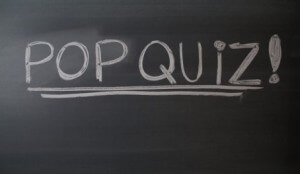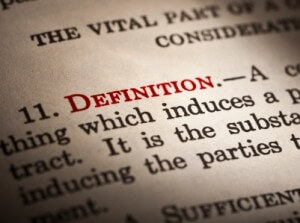A Plethora of Words for a Plethora
English has a lot of words for a lot.
Hmmn. How else could I say that sentence?
- English has a cornucopia of words for a plethora.
- English has myriad words for a surfeit.
- English is replete with words for a plentitude.
- English has a deluge of words for a profusion.
- English has a glut of words for a superfluity.
Of course, no mention of “plethora” on a vocabulary blog could go unaccompanied by this clip from the 1986 Steve Martin classic, ¡Three Amigos!, which famously coined the phrase “a plethora of piñatas.”
//www.youtube.com/watch?v=5IYDNymkUZc
Greek Deities: Vocab in Harry Potter
Although there is undoubtedly more esoterica to unearth, this will be our final post on characters from Harry Potter. (Although we do have another post coming on magic spells in Harry Potter).
 Hermes the Owl is, of course, named after the Greek god Hermes, who gives us the word hermetic, as in “hermetically sealed.” This might seem a bit weird until you realize that Hermes was not only the god of commerce, invention, cunning, and theft, but also the god of alchemy, which undoubtedly required sealing things in jars. Hermes was called Mercury by the Romans, hence the word mercurial.
Hermes the Owl is, of course, named after the Greek god Hermes, who gives us the word hermetic, as in “hermetically sealed.” This might seem a bit weird until you realize that Hermes was not only the god of commerce, invention, cunning, and theft, but also the god of alchemy, which undoubtedly required sealing things in jars. Hermes was called Mercury by the Romans, hence the word mercurial.
Apollyon Pringle (“caretaker at Hogwarts before Argus Filch”) takes his name from the Greek god Apollo, who gives us apollonian — “calm, ordered, rational, balanced.”
Of course, that word might remind you of Apollonia from Prince’s Purple Rain; interestingly, the name Apollonia was suggested by Prince for the actress based on the character Apollonia Vitelli-Corleone from The Godfather. And somehow, we can trace all that back to Apollo.
Visual Dictionary: Cog
Welcome to Visual Dictionary, a series of posts about words that are better expressed in pictures.
 This is a cog. It is a small gearwheel.
This is a cog. It is a small gearwheel.
Actually, the little teeth (“tenons”) coming out of it are called cogs, and the whole thing is can be called a cogwheel, but when most people say cog, especially in a metaphorical way, they mean the whole thing, the cogwheel.
In a literal sense, a cog or cogwheel “transmits successive motive force to a corresponding wheel or gear.” Usually, a lot of cogs work together, such as in this clockworks:

Metaphorically speaking, a cog is a person in a company or organization who does very routine tasks. If you’re a cog, you might be doing necessary work, but you might feel as though anyone could do your job, and as though you are not very significant. No one wants to be “a cog in the machine.”
Try this sample Antonyms problem:
COG :
A. TOADIE
B. WRENCH
C. DIRECTOR
D. PHILATELIST
E. LIBERTINE
Choose your own answer, then click “more.”
Brand Name Vocab: Alleviate with Aleve
Aleve is a painkiller whose name derives from alleviate: to lessen or make easier to endure. Pretty good name for something that kills headaches, no?
English is replete with words for this concept: mitigate and palliate are pretty direct synonyms (palliate occurs often in the term palliative care, which is medical care provided to people with incurable illnesses).
Other words related to the idea of decreasing or diminishing include abate and attenuate. Words related to diminishing the anger of others, specifically, include placate, propitiate, conciliate, and appease.
Interestingly, nearly all of these words denote an action performed by someone on something or someone else. As in, Some people find that chewing gum attenuates the desire for sweets, or I’m headed over to grandmother’s house to attempt to palliate the damage caused by the risqué wedding DJ.
Abate, however, can be used with an object (The Senate voted to abate the tax) or without an object (The rain abated). These differences can be important in GRE Antonyms and Analogies questions.
Talking Like a Fancy-Pants: Florid vs. Bombastic
English has many words to describe all-too-fancy writing. A good one is florid, which means “flowery” — that is, using an excess of adjectives, figurative language, and, often, unnecessary descriptions of the landscape.
Some people think Hawthorne was a rather florid writer:
Like all that pertains to crime, it seemed never to have known a youthful era. Before this ugly edifice, and between it and the wheel-track of the street, was a grass-plot, much overgrown with burdock, pigweed, apple-peru, and such unsightly vegetation, which evidently found something congenial in the soil that had so early borne the black flower of civilized society, a prison.
Bombastic writing has the added element of being pretentious. From Christopher Marlowe:
Our quivering lances, shaking in the air,
And bullets, like Jove’s dreadful thunderbolts,
Enroll’d in flames and fiery smouldering mists,
Shall threat the gods more than Cyclopean wars;
And with our sunbright armour, as we march,
We’ll chase the stars from heaven, and dim their eyes
That stand and muse at our admired arms.
Fun fact: bombast was once padding material used to puff up clothes!
Florid and bombastic writing is sometimes referred to as purple prose (since purple was once a sign of royalty, and sometimes lower-class people would display little bits of purple on their clothes to try to seem fancy). The Wikipedia page quotes several examples from Edward Bulwer-Lytton (the “It was a dark and stormy night” guy):
Other instances of purple prose quoted from the novel include “As soon as the Promethean spark had been fully communicated to the lady’s tube” (meaning Once the lady lit her pipe), “a nectarian beverage” (wine), “a somnambular accommodation” (a bedroom), and so on.
And finally, don’t forget grandiloquent and magniloquent, two more words for talking like a fancy-pants.
Vampires and Moon-Girls: More Vocab in Harry Potter
Wikipedia’s list of Harry Potter characters is a veritable trove of names based on Latin and Greek roots.
 The girl pictured at right is Luna Lovegood. Luna’s name comes from the root for the moon, which also gives us lunar and lunacy, which was originally thought to be associated with the changing states of the moon. (This is not a likely GRE word, but you might also be interested to know that lunambulism is “sleepwalking only in the moonlight”).
The girl pictured at right is Luna Lovegood. Luna’s name comes from the root for the moon, which also gives us lunar and lunacy, which was originally thought to be associated with the changing states of the moon. (This is not a likely GRE word, but you might also be interested to know that lunambulism is “sleepwalking only in the moonlight”).
But even more fun than that is Sanguini the Vampire (the tall guy on the left!)
If you speak French, Spanish, or another Romance language, Sanguini’s name might remind you of that language’s word for “blood.” There are at least two important GRE words related to this root:
Sanguine means “cheerful; reddish, ruddy.” The Ancient Greeks thought the body was ruled by the “Four Humors”: blood, phlegm, yellow bile, and black bile (this idea also gives us the words bilious and phlegmatic). To be sanguine was to be ruled by the blood — that is, having a reddish, healthy complexion, which it was thought would also make one cheerful.
However, the “blood” idea leads much more directly to the word sanguinary, which means “bloodthirsty” — just like Sanguini.
Incidentally, consanguineous means “related by blood,” and “sangria,” the alcoholic beverage, also comes from the same Latin root (via Spanish).
Pop Quiz: Talkative Vs. Non-Talkative
 Pop Quiz!
Pop Quiz!
Below are eight words: four of them mean talkative or wordy. Four of them mean not talkative, or using few words.
Put each in the correct category, then click “more.”
RETICENT
PROLIX
LOQUACIOUS
TACITURN
LACONIC
VOLUBLE
GARRULOUS
TERSE
Brand Name Vocab: Battle of the Shampoos
As the jingle goes: “Sometimes you need a little Finesse … sometimes you need a lot.”
 Can this shampoo give you 1) extreme delicacy in actions or tastes?
Can this shampoo give you 1) extreme delicacy in actions or tastes?
2) skill in handling a difficult or highly sensitive situation?
3) a trick, artifice, or stratagem?
While a nattily-dressed person could be said to have a pert outfit, one’s parents might very well say something like “Don’t be pert with me, young lady!” That is, pert has a few different meanings.
 Can this shampoo make you impertinent?
Can this shampoo make you impertinent?
Chic? Lively?
Now, if only someone made a shampoo called Omniscient or Pecunious.
Three-Letter Words: Fey
 Some of the most perplexing words on the GRE are diminutive. Who doesn’t see PAN : REVIEW and metaphorically scratch his or her head, or wonder what, exactly, a nib or a gin is on its own? Welcome to Three-Letter Words. A few of them might make you want to deploy some four-letter words.
Some of the most perplexing words on the GRE are diminutive. Who doesn’t see PAN : REVIEW and metaphorically scratch his or her head, or wonder what, exactly, a nib or a gin is on its own? Welcome to Three-Letter Words. A few of them might make you want to deploy some four-letter words.
Fey? Like Tina Fey? Perhaps Tina Fey is descended from fairies, since the word fey means, weirdly:
- like a fairy or elf; otherworldly, supernatural
- doomed to die, or full of the sense of impending death
- appearing touched or crazy
- acting an an affected way (like a modern person who thinks she’s a fairy)
Wow, that’s a lot of meanings. Let’s try some!
After seven days in the forest with only dewdrops to drink, he began seeing elves, trolls, and tiny, sparkly, fey creatures with itty-bitty flapping wings.
The fey old woman said, her hand shaking: “I don’t have much time left! You must turn off the cat and appraise cloud eleven!” Whoa.
The pop star — who until 2008 had been an unassuming college music major — all of the sudden adopted a fey demeanor, speaking in an unplaceable accent and displaying a disturbed but very artistic-looking twitch.
Try a sample Antonyms problem:
FEY :
A. adamant
B. ruddy
C. thaumaturgical
D. hale
E. meretricious
Choose your own answer, then click “more for the solution.
Visual Dictionary: Incendiary
Sometimes, a picture is worth a thousand words. Interestingly, just as “percent” means “per 100,” there’s a word for “per one thousand”: permille (also spelled permil, per mille, etc.) There’s even a symbol for it: °. So you could say that, in some cases, a word is 1° of a picture. Welcome to Visual Dictionary, a series of posts about words that are better expressed in pictures.
 Also incendiary.
Also incendiary.
An incendiary (such as dynamite) can literally set things on fire, or an incendiary (such the rebels of the Boston Tea Party, or Thomas Paine’s pamphlet Common Sense) can incite people towards strife or revolution. The word can be an adjective or a noun. As a noun, it can be an object or a person.
Consider this Antonyms problem…
INCENDIARY:
A. mallet
B. peeler
C. extinguisher
D. conflagration
E. tenderizer
…and this one.
INCENDIARY:
A. lukewarm
B. inflammatory
C. fractious
D. diluted
E. conciliatory
Look, one more!
INCENDIARY:
A. ascetic
B. pacifier
C. revolutionary
D. legate
E. stoic

